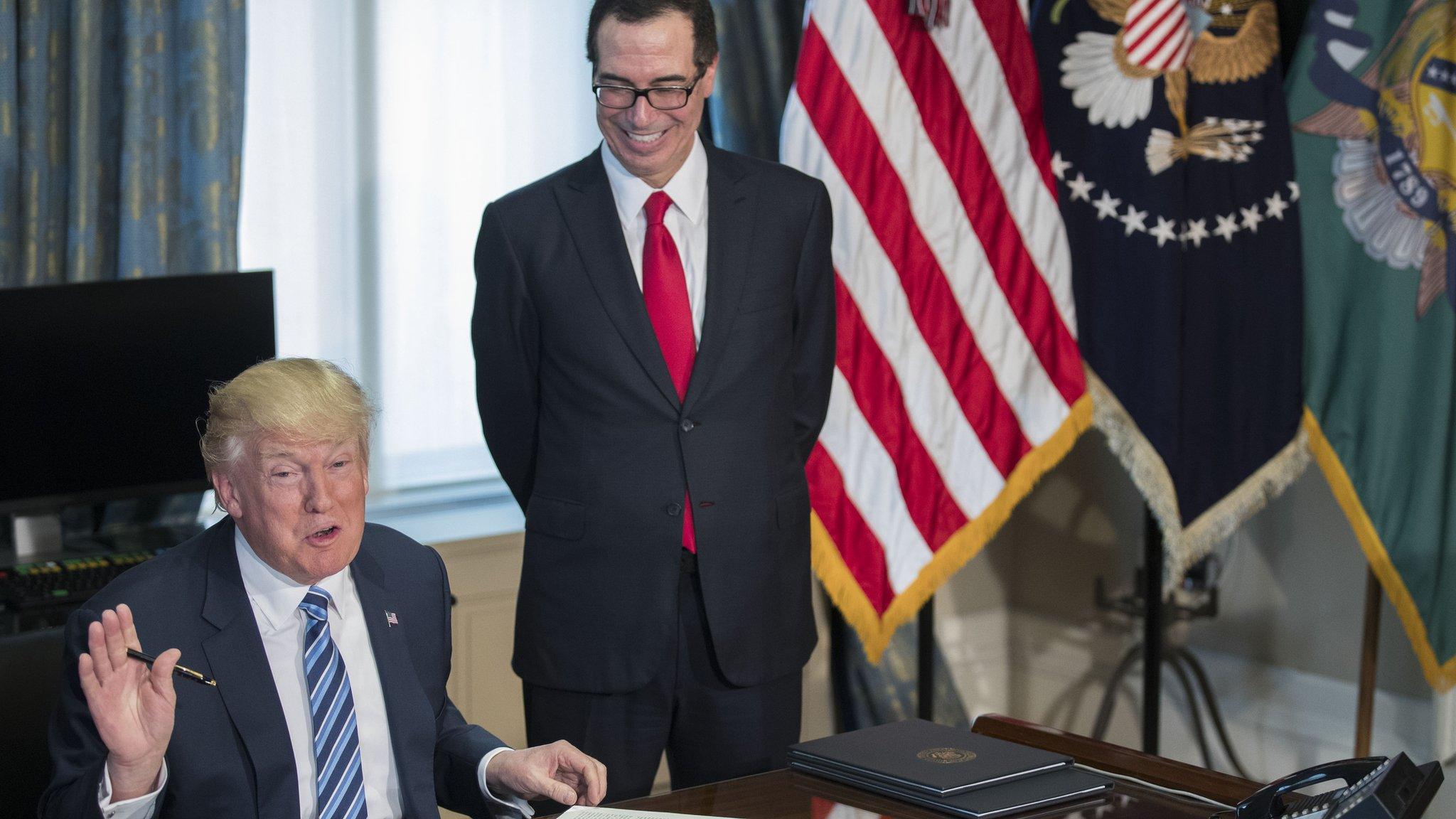Trump administration unveils plan to defang consumer watchdog
- Published

The Trump administration has said it wants to ease oversight of smaller banks and curb the Consumer Financial Protection Bureau's powers.
The report, external from the Treasury Department outlined administration priorities for rolling back rules imposed on the financial sector after the 2008 crisis.
It comes just days after the House of Representatives approved a sweeping financial reform bill.
The Senate has also started hearings on the measure.
What's the plan?
The changes - some of which require congressional action - were proposed late on Monday by the administration and include:
The White House wants the director of the Consumer Financial Protection Bureau to be removable at-will by the president and to make the agency dependent on Congress for funding
Exempting banks with less than $50bn (£39bn) in assets from annual stress tests and tailoring rules to allow other, larger institutions to opt-out
Exempt some firms, particularly smaller ones, from the Volcker Rule, which prohibits publicly insured institutions from proprietary trading
Where has this come from?
US Treasury Secretary Steven Mnuchin said in a statement: "We are focused on encouraging a market environment where consumers have more choices, access to capital and safe loan products - while ensuring taxpayer-funded bailouts are truly a thing of the past."
US President Donald Trump ordered a review of financial rules earlier this year, pledging a "major haircut" of the 2010 law known as the Dodd-Frank Act.
Supporters say that law has made the financial system safer.
But critics say it created an overly complicated oversight structure, which has raised compliance costs for businesses, slowed a rebound in lending and inhibited economic growth.
Where does it go from here?
The report endorses many of the proposals included in the so-called Financial Choice Act passed by the House last week.
But it does not go as far as that bill, which a spokesman for Senator Dick Durbin, one of the leading Senate Democrats, said is dead on arrival in the Senate.
Mr Mnuchin said the recommendations in Monday's report, some of which could be enacted by orders from the president, will move on a "parallel track" to congressional efforts.
A report by Goldman Sachs on Tuesday said it expects the recommendations that can be enacted without congressional action to go into effect next year at the earliest.
It said the odds of some of the more ambitious reforms are less certain.
"While we do expect some additional activity in the near term, financial regulatory reforms are likely to occur gradually, stretching well into next year and most likely the next few years," Alec Phillips of Goldman Sachs wrote in the report.